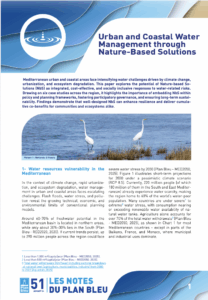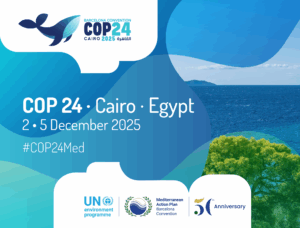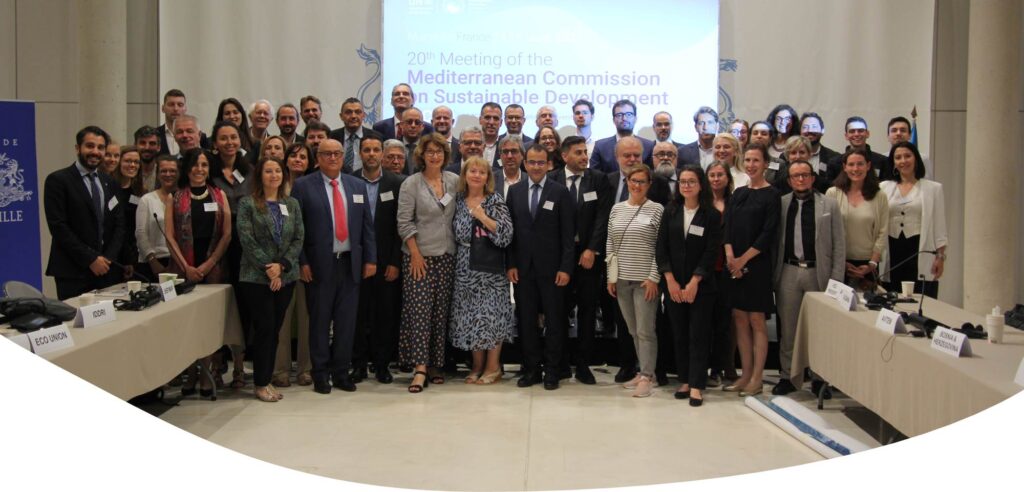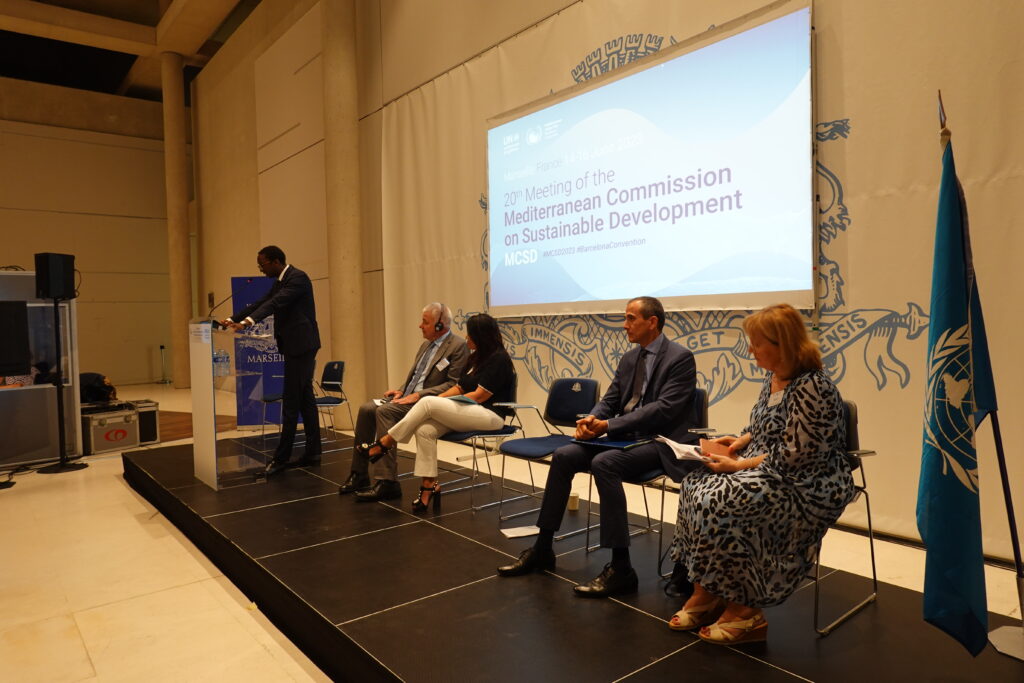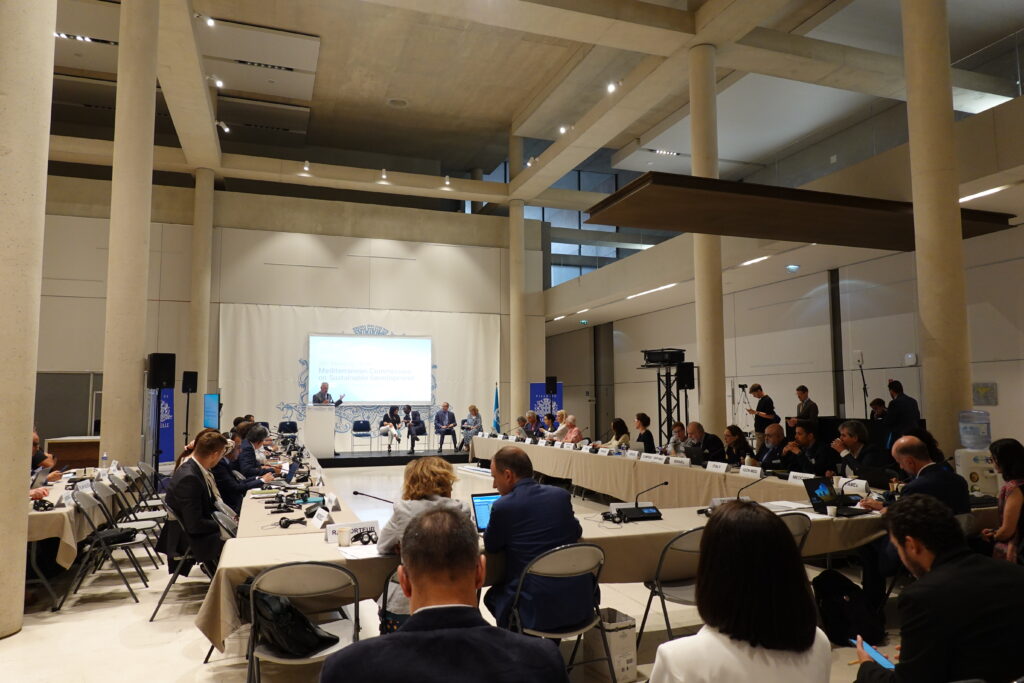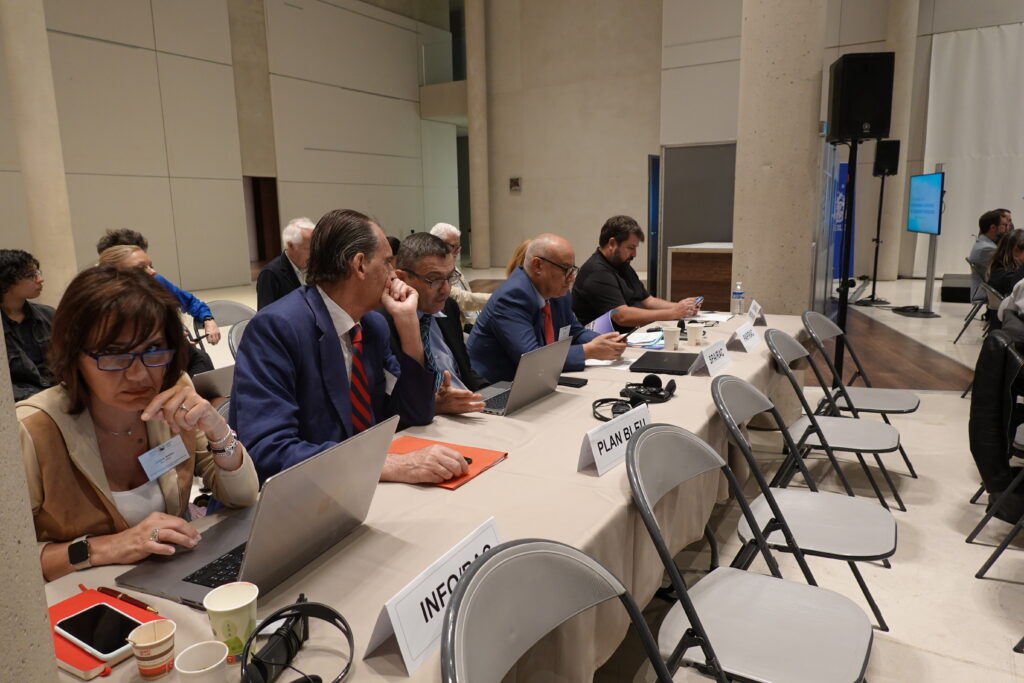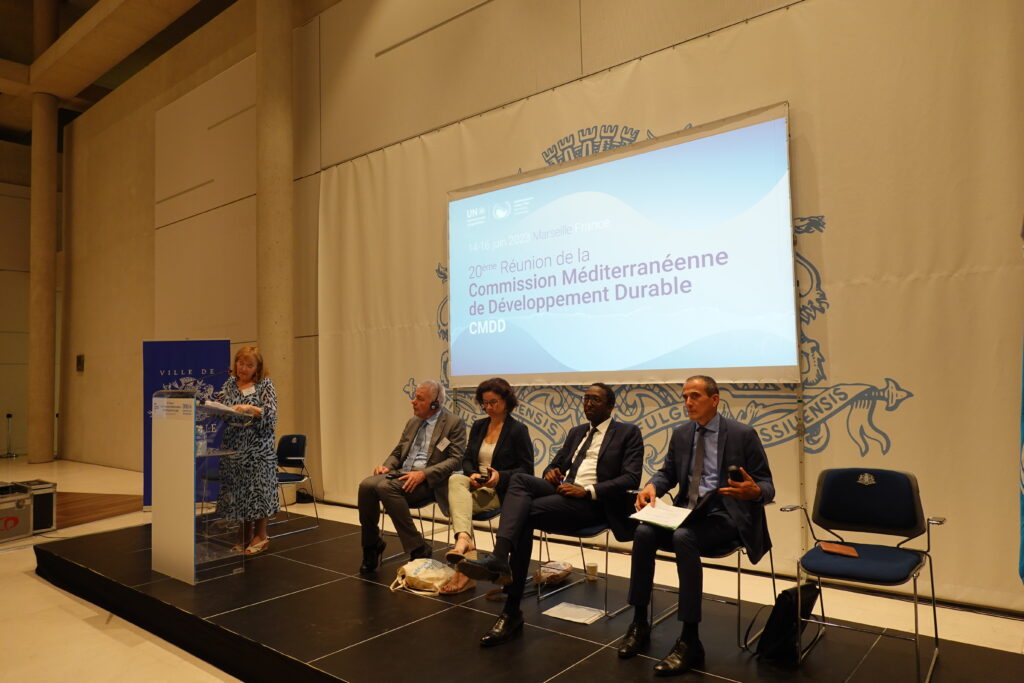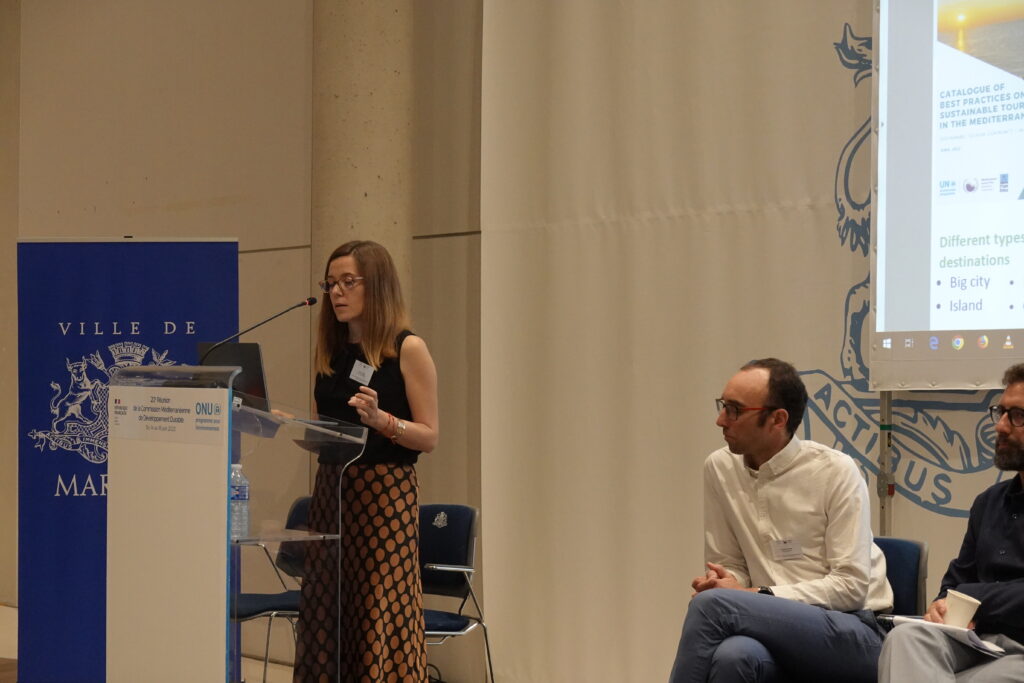The Mediterranean Commission on Sustainable Development calls for higher ambition and accelerated action to protect marine and coastal ecosystems and achieve the SDGs
The 20th meeting of the Mediterranean Commission on Sustainable Development (MCSD), established under the auspices of the UN Environment Programme’s Mediterranean Action Plan (UNEP/MAP), took place in Marseille (France) from 14-16 June 2023.
The members of the MCSD (representatives of the Contracting Parties to the Barcelona Convention, local authorities, intergovernmental organizations, civil society, parliamentarians and the science community) discussed and shared information on the implementation of the Mediterranean Strategy for Sustainable Development (2016-2025),which provides a set of regionally agreed objectives encompassing the 2030 Agenda and the 17 SDGs.
Speaking on behalf of France, which succeeds Slovenia in assuming the presidency of the MCSD for a two-year mandate, H.E. Hervé Berville, State Secretary for the Sea, welcomed the planned revision of the Mediterranean Strategy for Sustainable Development as an opportunity to raise ambition and accelerate action. “Chairing the MCSD is the continuation of France’s commitment to the ocean; a commitment that the One Ocean Summit in Brest and the forthcoming UN Ocean Conference to be held in Nice in 2025 exemplify,” Mr Berville. said, noting that “UNEP/MAP has the total support of the French government because we recognize that the Barcelona Convention is a pioneering regional sea convention that is one of the most successful among 18 similar treaties».
”. Mr Berville announced three priorities: biodiversity protection, including the protection of 100 per cent of Mediterranean Posidonia meadows by 2030; integrated marine planning, including the set-up of a dedicated working group linked to UNEP/MAP; and strengthened scientific knowledge and expertise, notably by supporting Plan Bleu (the UNEP/MAP Regional Activity Centre based in Marseille) andthe Network of Mediterranean Experts on Climate and Environmental Change (MedECC).
The members of the MCSD acknowledged progress and the need for strengthened partnerships to place the region on a path to sustainability and resilience. They identified areas for accelerated action, including:
- Protecting marine and coastal biodiversity and implementing the Mediterranean region’s own post-2020 Biodiversity Framework SAPBIO)
- Concentrating action on protecting Posidonia oceanica. Known as the “lungs of the Mediterranean”, Posidonia meadows are flowering marine plants that provide important habitats and high-value ecosystem services. They act as effective carbon sinks and help mitigate coastal risks, such as flooding and erosion, by acting as natural buffers.
- Raising collective ambition in the framework of the revision of Mediterranean Strategy for Sustainable Development. The exercise will consider the region’s sustainable development indicators and the results of the Plan Bleu-led MED 2050 Foresight Study,which provides visibility on possible futures of the Mediterranean through the lens of different scenarios. By encompassing these elements, the revised Strategy will seek to bend current trajectories and place the region on alternative pathways to sustainability and resilience.
Tatjana Hema, the UNEP/MAP Coordinator, noted that a sustainable blue economy—the theme of a roundtable held during the meeting— can be a driver of a broader transition to greener economic models transcending all economic sectors.
The MCSD recommendations capturing the priorities identified by its members will be conveyed by the Secretariat to the 23rd Meeting of the Contracting Parties to the Barcelona Convention and its Protocols (COP 23) –the “COP for the Mediterranean—that the Slovenian will host in December 2023. They will also feed into the preparation of the 2025 UN Ocean Conference (Nice, France) at which the UNEP/MAP-Barcelona Convention system will mark 50 years of multilateral cooperation for a healthy Mediterranean Sea and coast.






